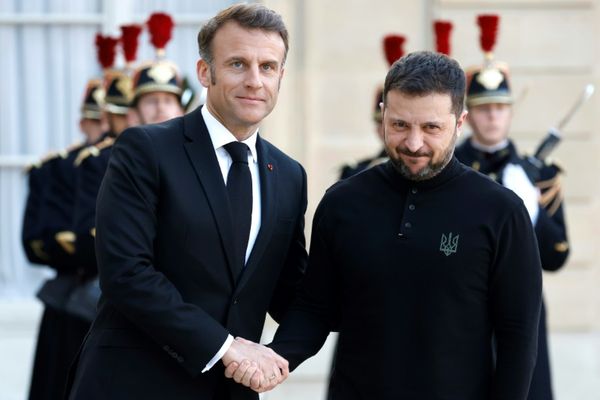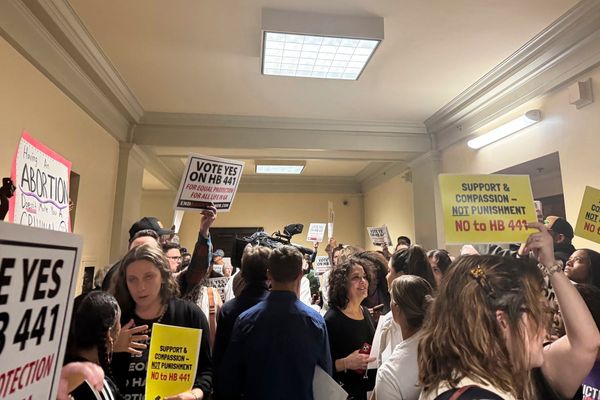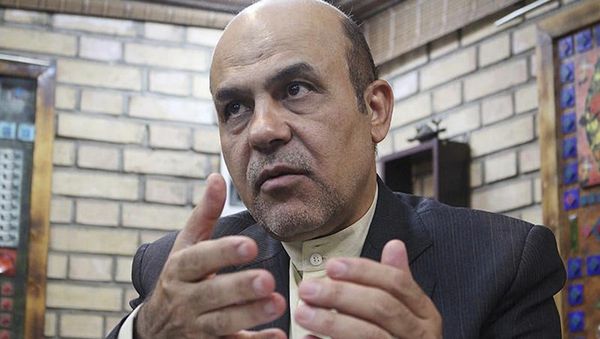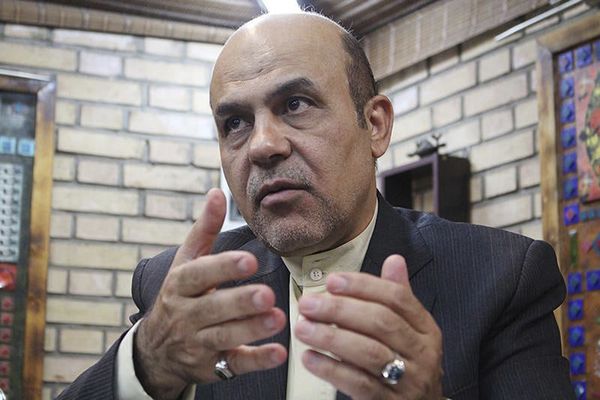
Paris (AFP) - Iran said Saturday it had executed a British-Iranian dual national sentenced to death for spying for the United Kingdom, drawing strong condemnation from Western governments and international rights groups.
Alireza Akbari, 61, was hanged after being convicted of "corruption on earth and harming the country's internal and external security by passing on intelligence", the judiciary's Mizan Online website said.It did not say when or where the execution took place.
Mizan said Akbari, who had been arrested more than two years ago, had been a spy for Britain's MI6 secret intelligence agency and had received around $2 million for his services.
British Prime Minister Rishi Sunak said he was "appalled" by the execution.
"This was a callous and cowardly act, carried out by a barbaric regime with no respect for the human rights of their own people," Sunak tweeted, adding his thoughts were with "Alireza's friends and family".
UK Foreign Secretary James Cleverly warned on Twitter that the execution would not go unchallenged, before announcing sanctions on Iran's prosecutor general to underline Britain's "disgust".
Iran summoned the British ambassador to protest against what it described as "unconventional interventions", after Britain said it would summon Tehran's envoy.
France's foreign ministry condemned the execution "in the strongest terms" and said it cannot go "unanswered", while President Emmanuel Macron denounced a "heinous and barbaric act".
The United States was "horrified" by Akbari's hanging, according to a State Department spokesperson.
"We mourn with his loved ones and will continue to hold Iran accountable for its sham trials and politicized executions," US Secretary of State Antony Blinken tweeted of Akbari's death.
News of the hanging came hours after the United States had joined its ally Britain in calling for Iran not to go ahead with the execution.
US diplomat Vedant Patel said Friday that Washington was greatly concerned by reports Akbari had been "drugged, tortured while in custody, interrogated for thousands of hours and forced to make false confessions".
'Forced confession'
Amnesty International called the execution "abhorrent".
It tweeted that Akbari had been subjected to "torture and other ill-treatment" such as being "forcibly administered chemical substances and being held in prolonged solitary confinement".
Media outlets in Iran, which does not recognise dual nationality for its citizens, had broadcast a video this week in which Akbari appeared to speak of his contacts with Britain.
BBC Persian this week aired an audio message it said was from Akbari in which he said he was tortured and forced to confess on camera to crimes he did not commit.
"I was given new clothes and asked to dye my hair to be released but then I was taken to a film studio and threatened with a gun to falsely confess," a man is heard saying in the recording.
Mizan Online, citing the intelligence ministry, said Akbari had become a "key spy" for MI6 due to "the importance of his position".
Akbari, a veteran of the 1980-88 Iran-Iraq war, was arrested between March 2019 and March 2020, state media said.
He was once identified by the government's official Iran newspaper as a former deputy defence minister under Ali Shamkhani, who currently heads Iran's Supreme National Security Council.
Akbari had also been an adviser to the navy commander and headed a division at the defence ministry's research centre, state media said.
'Hostage diplomacy'
Mizan said he had retired a decade ago and moved to "research and business activities in the private sector".
Prominent Iranian lawyer Saeid Dehghan said on Twitter that Akbari's sentencing and execution were "political", noting moves in Britain and the European Union to sanction Iran's Islamic Revolutionary Guard Corps (IRGC) over its role in a deadly crackdown on protests.
Mahmood Amiry-Moghaddam, director of Oslo-based group Iran Human Rights, told AFP the timing of the execution, "while the UK and EU are considering putting the IRGC on terror lists, shows it is part of the Islamic republic's policy of hostage diplomacy".
Richard Dalton, a former British ambassador to Iran, said the potential terror listing may have influenced the timing of Akbari's execution.
"It is possible that they want to assert their right to protest against that in advance," he told Times Radio.
Amnesty says Iran is the world's most prolific user of the death penalty after China.
Another dual national also facing the death penalty is Swedish-Iranian Ahmadreza Djalali, who has been held since 2016 and was sentenced the following year on espionage charges that his family vehemently denies.
Iran has been rocked by protests that erupted over the September 16 death of Mahsa Amini, a 22-year-old Iranian Kurd, after her arrest for an alleged breach of the country's dress code for women.
Eighteen people have been sentenced to death in connection with the protests, according to a count compiled by AFP from official announcements. Four of them have been executed.
burs-dv/ami/lg/caw/mtp










